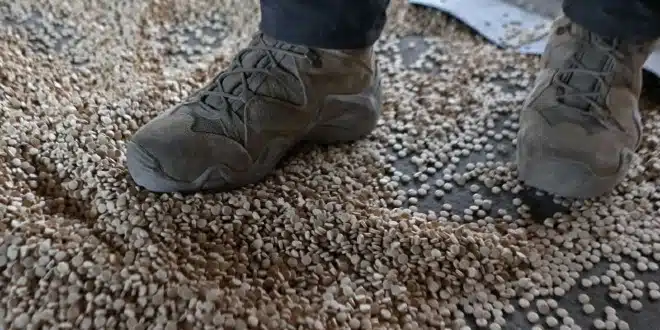Syrian authorities have reported a major drug bust involving the seizure of approximately three million captagon pills along with 50 kilograms of hashish. The operation took place near the border with Lebanon following a security operation against a suspected trafficking group.
According to the Syrian interior ministry, security forces detected suspicious activity involving individuals crossing from Lebanon into Syrian territory through unauthorized routes in the Jarajir area, located in the northern countryside of Damascus. A tactical ambush was initiated, resulting in armed confrontation between the smugglers and Syrian security units. During the clash, several members of the trafficking group reportedly fled the scene, abandoning a vehicle that was later found to be carrying the seized contraband.
The ministry emphasized that the intercepted drugs, especially the stimulant captagon, were intended for further distribution, and it reiterated that Syrian land must not be used as a conduit or safe haven for narcotics trafficking.
Context of Captagon Trade and Regional Implications
Captagon, an amphetamine-like substance, has emerged as one of the most trafficked drugs in the Middle East, with production hubs reported both in Syria and Lebanon. The border separating the two countries, spanning over 300 kilometers, is largely unmonitored and frequently exploited for smuggling various goods, including drugs.
Over the course of Syria’s prolonged civil conflict, which began in 2011, the production and trade of captagon escalated significantly. It eventually became a major export commodity for Syria, generating significant illicit revenue streams. International observers and analysts have previously highlighted the role of captagon smuggling in supporting state-aligned actors during the conflict, including factions loyal to the former government.


